Article
What I Wish I Knew: Advice from UX/UI Designers
![]()
Written By Imogen Crispe
![]()
Written By Imogen Crispe
Course Report strives to create the most trust-worthy content about coding bootcamps. Read more about Course Report’s Editorial Policy and How We Make Money.
Course Report strives to create the most trust-worthy content about coding bootcamps. Read more about Course Report’s Editorial Policy and How We Make Money.
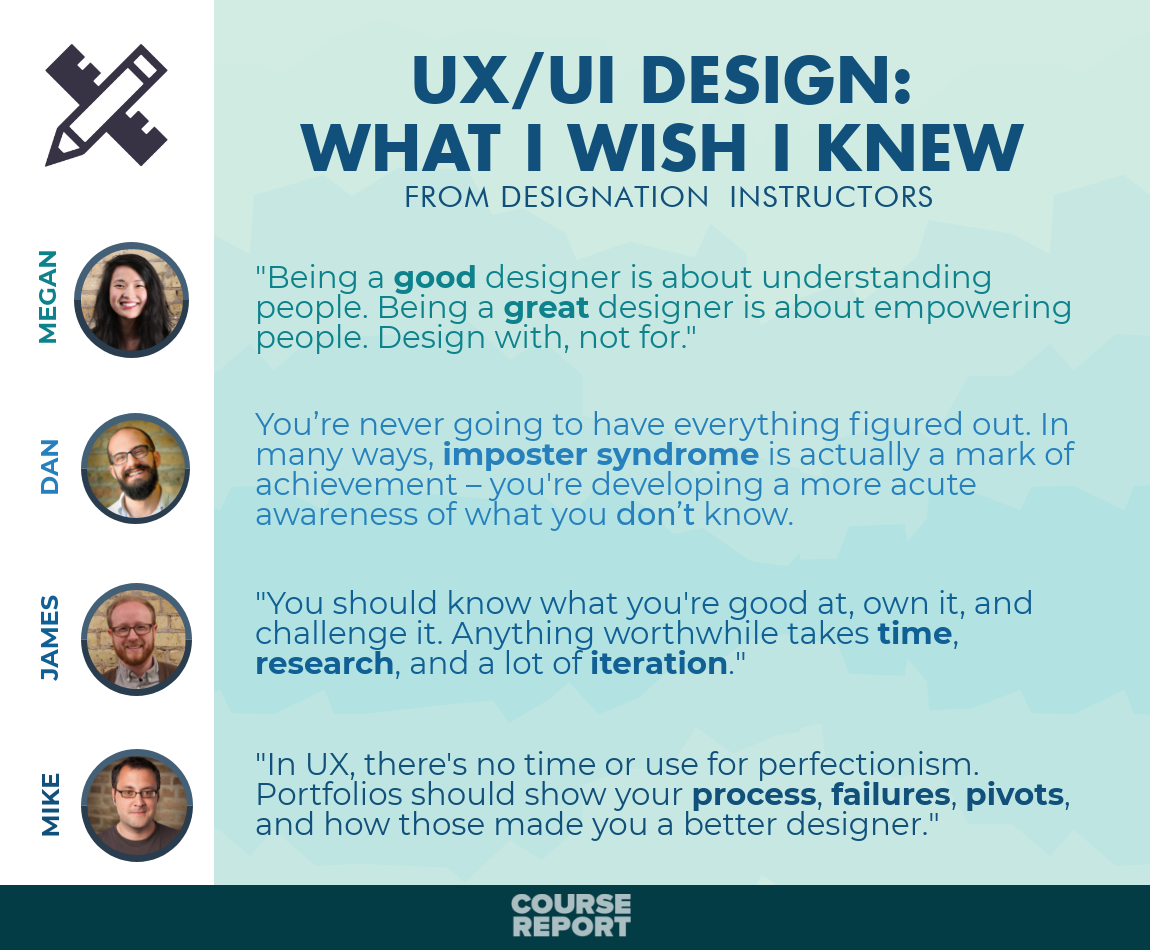
Changing careers is a challenge in self-doubt, especially when you’re entering a creative field like UX/UI design. Aspiring designers might ask, “Do I have the right background? Will I be able to do a good job?” To allay those fears, we asked four experienced Digital Designers who teach at the Designation (now Flatiron School) UI and UX Design Intensives, to tell us what they wish they knew before they started their design careers, how to overcome impostor syndrome, and their top tips for starting a new career in UX/UI Design.
As of 5/1/19, Designation is now Flatiron School. Read more about UX Design at Flatiron School on Course Report.
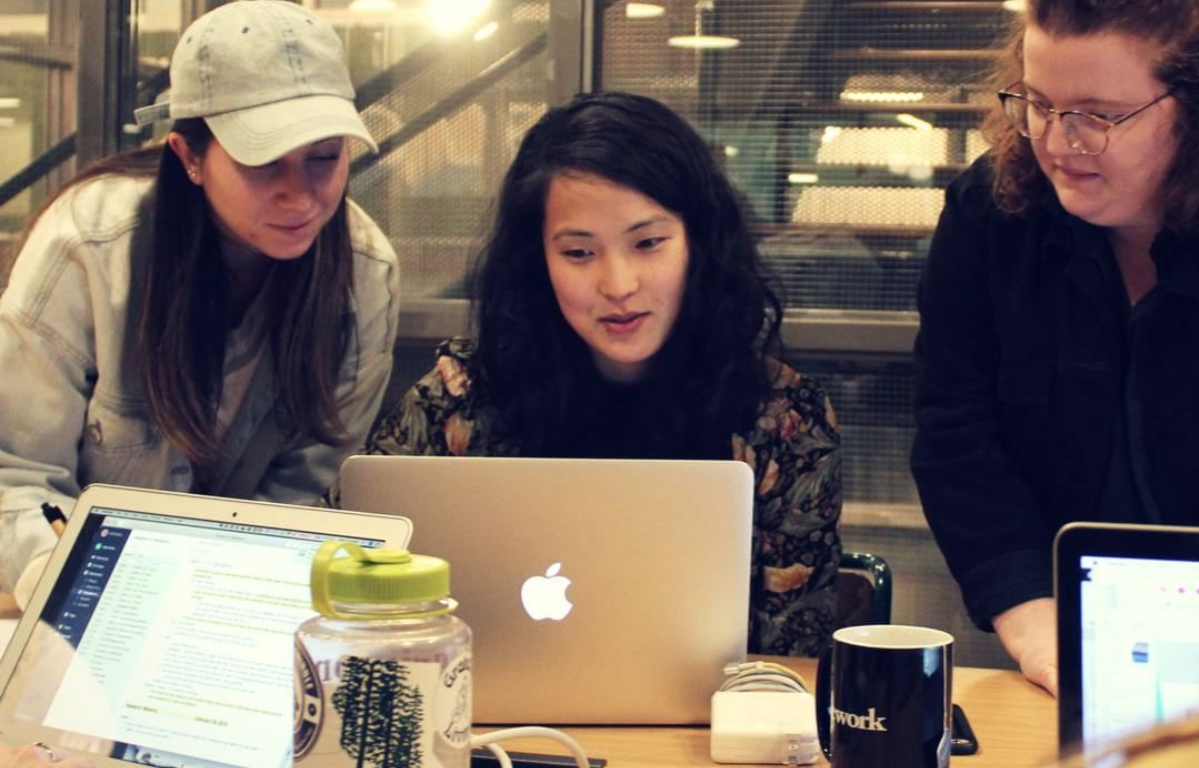
What made you want to pursue a career in design?
I never wanted to stop exploring. It was either become a designer or become an astronaut. For the latter, I knew I’d never meet the physical requirements.
What do you wish you knew before you started your career in digital design?
What advice do you have for a new designer who is experiencing impostor syndrome?
For me, experiencing imposter syndrome has pushed me to become a better designer. It’s a reminder to keep challenging yourself, to recognize that you can always learn more, and to check your privilege along the way.
What’s your top tip for anyone about to make a career switch to UX or UI design?
Never let fear keep you from trying something new. The worst that can happen is you fail, and failure is subjective.
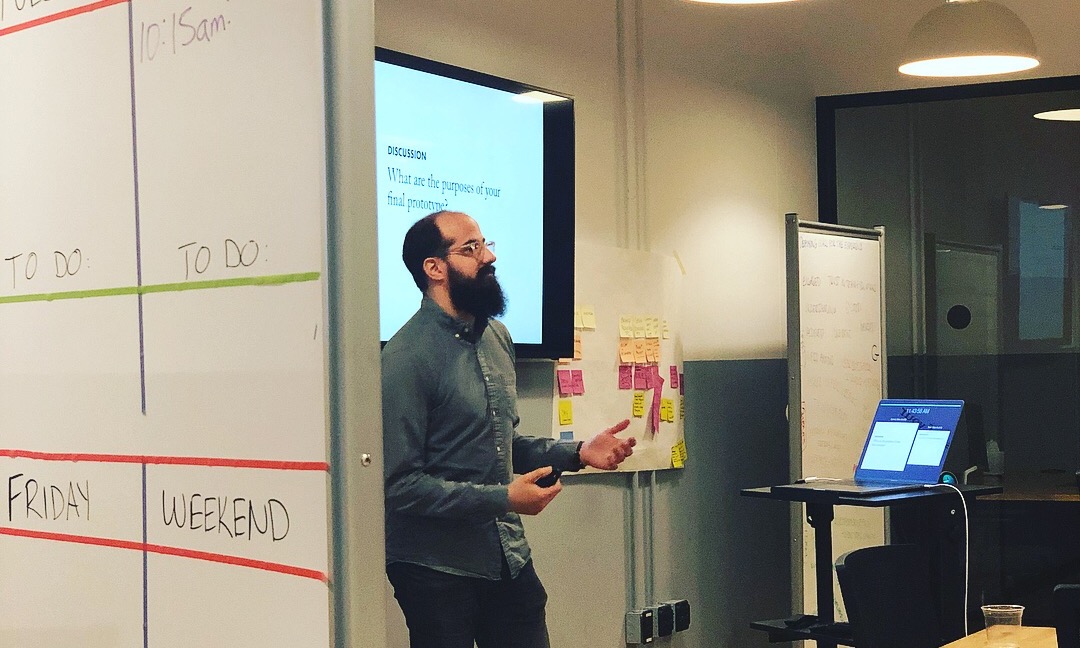
What made you want to pursue a career in design?
I come from a fine arts background, but also have a strong analytic streak (which has lent itself to the problem solving involved in programming and development). When I discovered the discipline of UX, it was like discovering a language for the ways I already thought about the design of products and services. For me, that’s a mindset that sits at the nexus of the possibilities of technology, a respect for the aesthetic side of being human, and a desire to see things made better.
What do you wish you knew before you started your career in digital design?
What advice do you have for a new designer who is experiencing impostor syndrome?
What are your top tips for anyone about to make a career switch to UX or UI design?
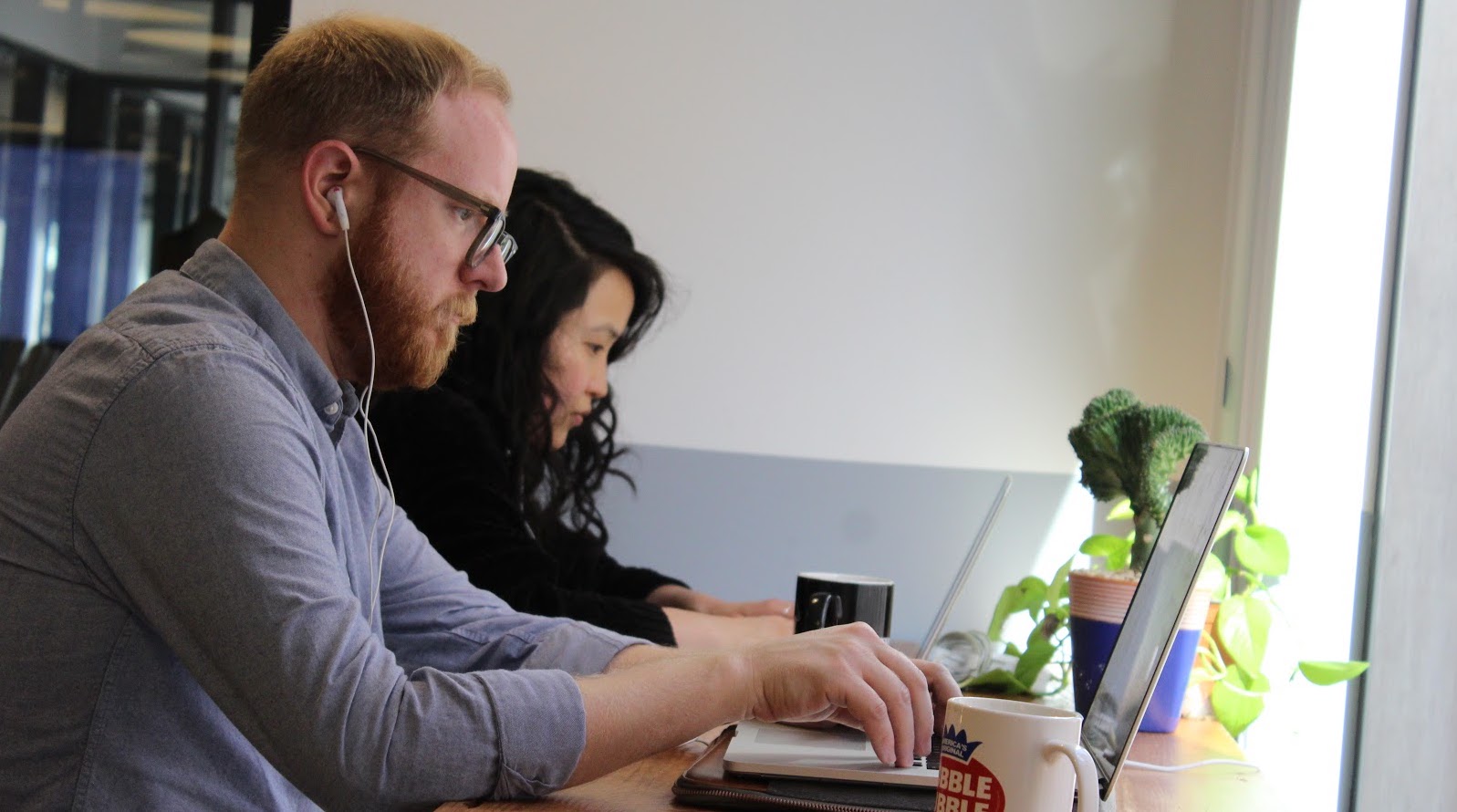
What made you want to pursue a career in design?
I was fortunate enough to grow up in a creative household. My mother was a teacher and illustrator and my father was a daytime journalist and night-time drummer, so I was exposed to the arts at an early age. I always thought I would pursue my passions much like my parents did before other obligations became more predominant.
My background is in graphic communications and psychology, but when graphic design work turned into digital design, I retired my Creative Suite account and pivoted towards learning front-end development. Unable to find the heart in my development work, I fell back on my passion for music and design.
What do you wish you knew before you started your career in digital design?
What advice do you have for a new designer who is experiencing impostor syndrome?
What are your top tips for anyone about to make a career switch to UX or UI design?
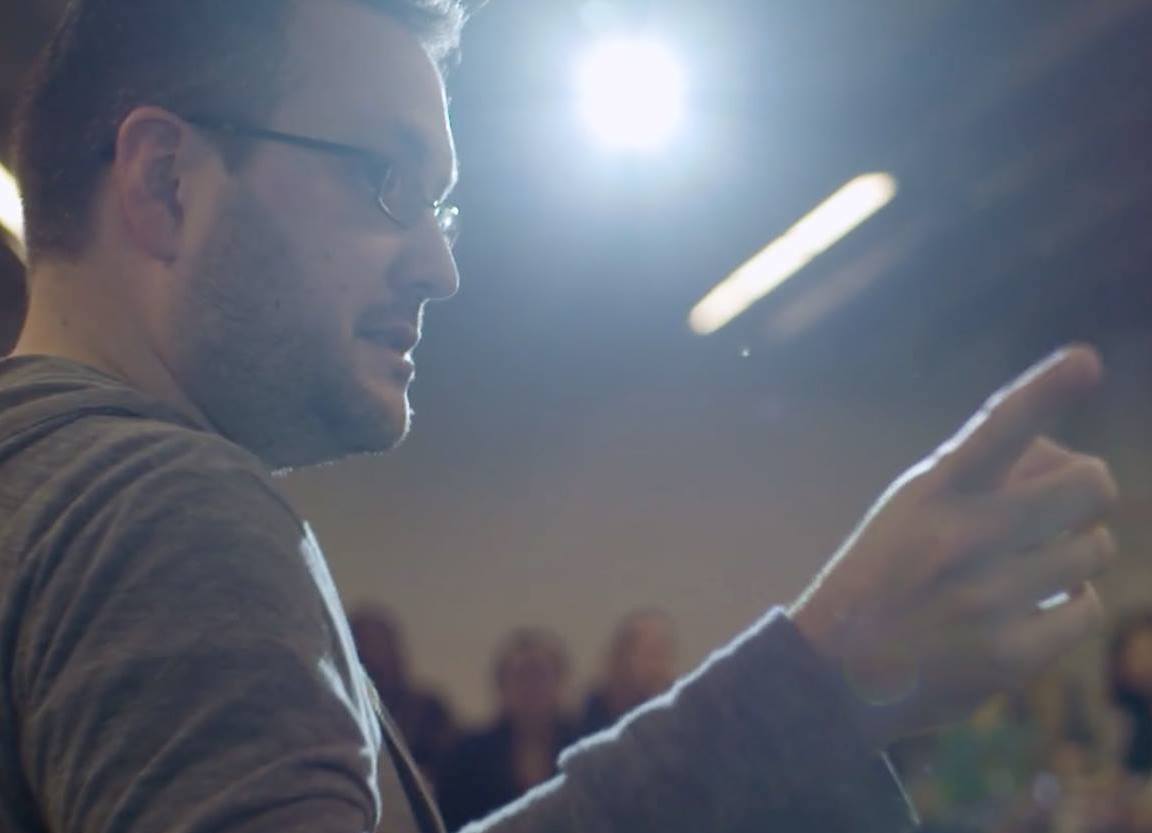
What made you want to pursue a career in design?
I originally went to school for graphic design and practiced that for a while. I switched to design management, then did a few jobs around communications and marketing, and also taught design for a semester.
I also did years of work in community-building and organizational leadership, gave hundreds of portfolio reviews, and had done a lot around self-promotion and storytelling. When I learned about Designation, I realized I had a huge amount of experience I could share with others.
What do you wish you knew before you started your career in UX design?
I was always more of a perfectionist as a graphic designer. I wanted every detail in place, every character kerned exactly right, everything set before I presented my work to a creative director. I’d often have to go back and make more fundamental changes based on their feedback, which rendered all my perfectionist tendencies useless. I’d get frustrated at that happening year after year in my jobs.
But in UX, there’s no time and use for perfectionism. The minimum viable product-building is there for the truly important reason of making sure the designer plans for getting that feedback – not just from authority figures but from users too – and using the review process to create something great in stages. Once I experienced that, I never wanted to go back to my old way of doing things.
What advice do you have for a new designer who is experiencing impostor syndrome?
Recognize that the best designers know they always have more to learn; if someone feels like they’re less of a designer than another person, they need to turn it into an opportunity for more growth. Humility about perpetual growth is one of the keys to success in design, and we’re lucky today that there are so many areas surrounding UX or UI that designers can start exploring and eventually become experts in.
What’s your top advice for anyone about to make a career switch to UX or UI design?
This may be counterintuitive, but avoid googling the phrase “good UX or UI design portfolio.” There are a slew of portfolios out there that show really great work, and show their designers are strong in concept and practice. But so many of those portfolios toss out a few beautiful images of final screens and maybe include a paragraph or two of copy. The story, the process, and the context for why they made design decisions are missing.
That might be okay for those designers, if they’re very experienced and have little left to prove as professionals. But entry-level designers have everything to prove. They’re untested in the world, and they have to fight to be noticed and taken seriously. Their portfolios have to show a great deal of their process, including the failures and pivots, and explain how the experience made them better designers. Anyone starting a program like ours can start that anytime, by explaining how they learned something and always knowing where they can take their next step.
FURTHER READING:

Imogen Crispe, Content Creator and Entrepreneur
Imogen is a writer and content producer who loves exploring technology and education in her work. Her strong background in journalism, writing for newspapers and news websites, makes her a contributor with professionalism and integrity.










Sign up for our newsletter and receive our free guide to paying for a bootcamp.
Just tell us who you are and what you’re searching for, we’ll handle the rest.
Match Me